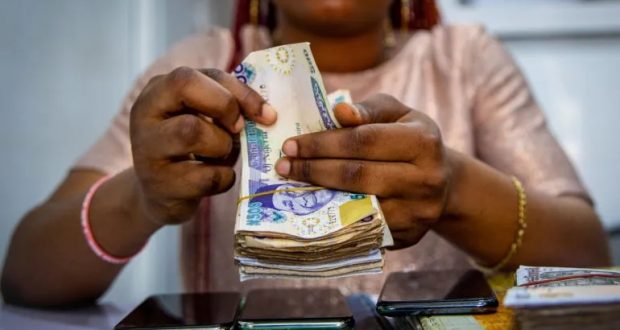AS the economy flounders, the hike in the benchmark lending rate from 11.5 per cent to 13 per cent by the Central Bank of Nigeria may not provide the much-needed succour for the productive sectors of the economy, or ease unemployment, inflation, and poverty. Emerging from the third Monetary Policy Committee meeting of 2022, the CBN Governor, Godwin Emefiele, said the rise in the Monetary Policy Rate by 150 basis points was primarily to tamp down inflation and to avoid overheating the financial system. The organised private sector disagrees, insisting that it would instead further weaken the manufacturing sector and stifle small businesses.
What is clear is that amid the furious headwinds lashing the economy, the CBN’s exertions have failed so far to tame inflation, stimulate the productive sectors, or rescue the critical micro, small and medium enterprises sector to boost job creation and diversify export and revenue sources. This should be the primary focus of the fiscal and monetary policy authorities.
The problem is well-known but implementing effective solutions has been elusive. As Emefiele explained, the MPC was concerned that inflation might spike even higher and harm the economy. His fears are well-grounded. The latest inflation figures released by the National Bureau of Statistics showed a jump to 16.82 per cent in April, the highest in eight months, and compared to the 15.92 per cent recorded in March. Food inflation was higher at 18.73 per cent, up from 17.2 per cent the previous month. Nigeria has the eighth highest inflation rate in Africa. It fares worse than Egypt with 13.1 per cent in April, and 5.9 per cent in South Africa, according to Focus Economics. Claiming to pursue an expansionary monetary policy in the last 24 months, the CBN retained the asymmetric corridor around the MPR at +100/-700 basis points, Cash Reserve Ratio at 27.4 per cent and Liquidity Ratio at 30 per cent.
Reacting, however, the Manufacturers Association of Nigeria said it would rather compound the plight of manufacturers and hit smaller producers the hardest in terms of access to credit at affordable rates. By convention, the Bankers’ Committee (made up of deposit money bank CEOs and CBN directors) agree that onward lending to customers would generally not exceed 4.0 per cent above the MPC rate, which is the rate at which the apex bank lends to the DMBs.
MAN lamented, “Commercial loans are already beyond the reach of manufacturers, especially the small and medium manufacturers. The continuous rise in food prices is worrisome. Then, exchange rate continues to go up. The CBN leadership will have to do something about it.”
Average lending rates are already prohibitive at between 16 per cent and 40 per cent. As expected, the rate hike would raise costs of production, reduce SMEs’ capacity to employ and expand, and limit the purchasing power of consumers. SMEs are critical, having great potential for employment generation, innovation, indigenous entrepreneurship, and forward integration with large-scale industries.
Benchmark rates are used by central banks to control money supply, inflation, and productivity. It impacts consumer spending and borrowing. Development experts recommend single digit lending rates to facilitate access to credit. In an emerging economy, this assumes even greater importance.
This is because typically, the SMEs that drive growth, exports and job creation cannot afford high rates of borrowing. They face myriad other constraints. So, proactive governments and central banks deploy policies to assist them in diverse ways. One is access to low-interest credit.
The NBS says SMEs in Nigeria contribute 46.31 per cent of national GDP, account for 96.7 per cent of businesses and 84 per cent of employment. In South Africa, SMEs account for 91 per cent of businesses, 60 per cent of employment and contribute 52 per cent of GDP. South Korea’s three million SMEs account for 99.9 per cent of all Korean enterprises and their 10.5 million employees constitute 87.5 per cent of employment.
Funding is the lifeblood of SMEs. According to data from the OECD, SME loans account for more than 80 per cent of all loans in member countries. In addition, the volume of outstanding guarantees amounts to 6.2 per cent of GDP or second only to 7.3 per cent in Japan. In Nigeria, the percentage of total banks’ lending to the private sector in the five years to 2017 was less than 1.0 per cent.
In India, the World Bank MSME Growth, Innovation and Inclusive Finance Project improved access to finance for MSMEs in three segments: early-stage/start-ups, services and manufacturing. Investors enjoy a credit line of $500 million, provided to the Small Industry Development Bank of India and technical assistance of about $3.7 million. For Nigeria, this is the way to go.
A 2017 study by the International Finance Corporation and RBL, an Indian financial institution, revealed that access to credit had a significant relationship with job creation. Presently, more than 170 countries, including the United Kingdom, United States, Japan, Taiwan, and Germany, use the credit guarantee scheme to help SMEs obtain easier access to capital.
The IFC estimates that 65 million firms, or 40 per cent of formal MSMEs in developing countries, have an unmet financing need of $5.2 trillion every year, equivalent to 1.4 times the current level of the global MSME lending. A clear indication of the high mortality rates of SMEs is reflected in a January report showing that 39.4 million MSMEs operated in Nigeria as of December 2020, down from 41.5 million in 2017, a decrease of 4.5 per cent.
Though the CBN introduced some interventionist programmes to accelerate small business growth, such initiatives have been largely inadequate. Last year, it disbursed N149.21 billion to SMEs and households across the country under the Targeted Credit Facility, with a promise to increase its support from N150 billion to N300 billion. Repayment has been beset by insecurity, forex scarcity and rising energy costs.
The government should address the energy crisis and poor infrastructure that have constrained the growth and vibrancy of SMEs, limited their competitiveness and stunted innovation. To revitalise the SMEs, the CBN should manage the lending rates more effectively, curb inflation and incentivize expansion and competitiveness.
(Punch Editorial)
 Newsfront Online …Telling the Public as it is
Newsfront Online …Telling the Public as it is




